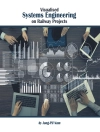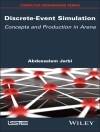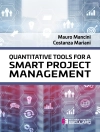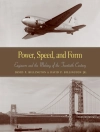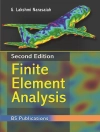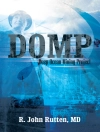This book features high-quality research papers presented at the 2nd International Conference on Sustainable Expert Systems (ICSES 2021), held in Nepal during September 17–18, 2021. The book focusses on the research information related to artificial intelligence, sustainability, and expert systems applied in almost all the areas of industries, government sectors, and educational institutions worldwide. The main thrust of the book is to publish the conference papers that deal with the design, implementation, development, testing, and management of intelligent and sustainable expert systems and also to provide both theoretical and practical guidelines for the deployment of these systems.
Tabela de Conteúdo
E-learning based Collaborative Learning Experience in the Education Paradigm.- Using Clean Architecture Principles to Improve the Design and Implementation of the Mobiles Online Platform.- Detection of Arrhythmia using Convolution Neural Networks.- The Hybrid Vision Transformer Approach for Hyperpigmentation Nail Disease Detection.- Covid19 Fake News Detection Using Glove and Bi-LSTM.- Combinatorial Test Perspective on Test Design of SDN Controllers
Sobre o autor
Prof. Dr. Subarna Shakya is currently a professor of computer engineering, Department of Electronics and Computer Engineering, Central Campus, Institute of Engineering, Pulchowk Tribhuvan University; Coordinator (IOE); and Leader Project (Links in Europe and Asia for engineering, e Ducation, Enterprise and Research exchanges), Erasmus Mundus. He received M.Sc. and Ph.D. degrees in computer engineering from the Lviv Polytechnic National University, Ukraine, 1996 and 2000, respectively. His research area includes e-government system, computer systems and simulation, distributed and cloud computing, software engineering and information system, computer architecture, information security for e-government, and multimedia systems.
Dr. Ke-Lin Du is a research scientist at Center for Signal Processing and Communications, Department of Electrical and Computer Engineering, Concordia University, since 2001, where he became an affiliate associate professor in 2011. His research area includes signal processing, wireless communications, and soft computing.
Wang Haoxiang is currently the director and lead executive faculty member of Go Perception Laboratory, NY, USA. His research interests include multimedia information processing, pattern recognition and machine learning, remote sensing image processing, and data-driven business intelligence. He has co-authored over 60 journal and conference papers in these fields on journals such as
Springer MTAP,
Cluster Computing,
SIVP,
IEEE TII,
Communications Magazine,
Elsevier Computers & Electrical Engineering,
Computers,
Environment and Urban Systems,
Optik,
Sustainable Computing: Informatics and Systems,
Journal of Computational Science,
Pattern Recognition Letters,
Information Sciences,
Computers in Industry,
Future Generation Computer Systems; Taylor & Francis
International Journal of Computers and Applications and conference such as IEEE SMC, ICPR, ICTAI, ICICI, CCIS, and ICACI. He is the guest editor for
IEEE Transactions on Industrial Informatics,
IEEE Consumer Electronics Magazine,
Multimedia Tools and Applications,
MDPI Sustainability,
International Journal of Information and Computer Security,
Journal of Medical Imaging and Health Informatics,
Concurrency and Computation: Practice and Experience.


